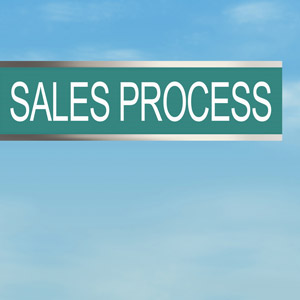
About a decade ago, I was part of a team that was responsible for finding and training new salespeople in preparation for the busy sales season each year. The drastic seasonality of the motorcycle business meant that we needed to ramp up from a sales team of 6 to a team of 15 almost overnight. This happened every year. We would plan in December, hire in January, train in February and be ready for prime time in March.
The summers at Harley Davidson were a lot of fun, full of amazing people, bikes, and events. It was also a 7 day per week grind that took its toll on everyone involved. The seasonality and stress resulted in a need to replace 60% of our sales team each year.
Aside from the obvious downsides of this situation, one thing was clear: Our sales process needed to be clearly defined and articulated because we had to train it fast. Making this all happen required skilled managers and sound systems. These systems included our , a hand-written sales log and a big dry erase white board.
Related Post → Leveraging the Flexibility of Your CRM
This experience taught me the importance of a well-defined sales process. As our business software consultants work with clients to help them implement their CRM systems, the sales process is always a key point of discussion. Dynamics 365 CRM has the flexibility to keep it very simple or to support a very detailed process based on the client’s specific needs.
Here are a few specifics worth considering.
Lead Qualification
Microsoft Dynamics 365 CRM has full lead management capability ranging from to full control of what happens during lead qualification. Some clients choose to use the leads functionality and others do not find it necessary. Leads in Dynamics 365 are simply new potential clients contained in a single record in the system. They allow for quick entry into the system without all the overhead of the more robust Account-Contact-Opportunity data structure. Some clients will use leads to capture lists of potential customers which are then put through a qualification process to identify true opportunities.
Sales Stages
Sales Stages are the building blocks of sales process design in Microsoft Dynamics 365. The number of stages and the stage names are fully customizable to your specific sales process. The movement from stage to stage can be controlled manually by the user or can be automated based on data and events captured by the CRM. The “out of the box” sales stages are the traditional Qualify, Propose, Contract and Close. Sales Stages also form the basis of the “Sales Pipeline” in Dynamics 365 CRM. This sales pipeline or funnel becomes a very visible and useful tool in the CRM.
Stage Milestones
Milestones or tasks can be assigned to each sales stage. These milestones are fully customizable and can be defined as required or optional when moving from stage to stage. For example, milestones under the Propose stage might be: Date Quoted, Quote Submission Date and Key Decision Maker. The sales stage can automatically move from Qualify to Propose when these items are entered. The stage can then be advanced again to Contract when the opportunity status is changed to Won.
Automated Workflows
As an opportunity moves through the various sales stages, automated workflows can be triggered to integrate with other processes at the company or to inform key people. For example, if new quotes greater than $20,000 need to be approved by management, the necessary details can be automatically emailed to the right people as soon as the Date Quoted has been entered.
Summary
Sales process design is a critical success factor for any company. Defined processes bring consistency in execution as well as provide a foundation for on-boarding new team members. The Dynamics 365 CRM system provides flexibility in designing and supporting a sales process that meets your specific needs.
About the Author
Brian Busscher is CEO of Thesis Technologies which pursues a mission to “help you get your systems right.” If you would like to learn more about how Dynamics 365 CRM can help improve your business, please contact the Thesis team at (888) 705-7253.
Find other Dynamics 365 blog posts here.
This blog post has been updated.